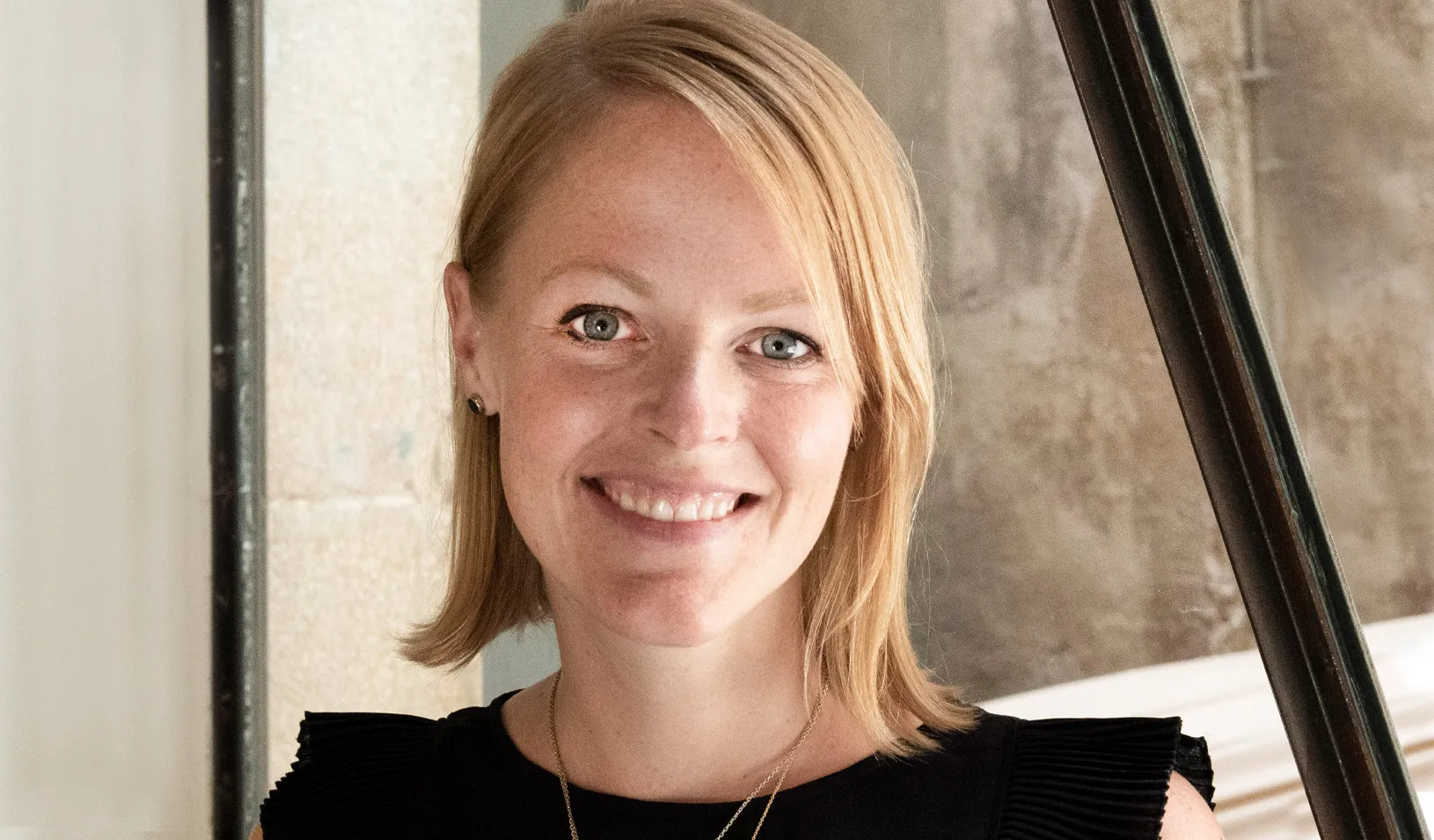Black Business Students Association, Alumni Celebrate Empowerment at Annual Gala
Annual gala unites student group and Black alumni chapter to celebrate diversity, impact of students and alumni.
March 15, 2016

Daryn Dodson accepts award from Kathryn Leary, MBA ’77. | Stacy Geiken
The Black Business Students Association annual gala celebrates diversity at Stanford Graduate School of Business and recognizes the accomplishments of BBSA members, both as GSB students and as alumni. This year’s theme, “Empowered: Unlocking Our Potential,” celebrated the 33rd anniversary of the event, and was held on campus to kick off Black History Month in February.
The gala is an opportunity to bring members of the GSB Black Alumni Chapter back to campus; this year’s attendance exceeded 200 from across the country and around the globe.

From left to right: Kassandra Hasty (BBSA Chief Financial Officer), Anne Kasitaza (BBSA Gala Co-Chair), Ashley Edwards (BBSA President), and Saron Tesfalul (BBSA Gala Co-Chair). | Stacy Geiken
“We feel uplifted by their legacies and by their legendary status,” said second-year MBA student and BBSA co-chair Anne Kasitaza of the convergence of the two groups for the event. “The people who have built businesses come up from nothing to be the people who they are today, and also to be able to give back to their communities. We feel empowered by their stories and we really want to leverage their stories and testimonies into our futures. We want to think about what they have done and what we could do for the next generation.”

Madhav Rajan | Stacy Geiken
“Tonight we celebrate diversity, but it’s what we do every day that can change the way people interact, communicate, and live their lives in living rooms, classrooms, and boardrooms across the U.S.,” said Madhav Rajan, the school’s senior associate dean for academic affairs, in his address. “Last year I spoke at this event and I made a point of saying that we all hear the news and see the videos about the racial tension that exists in America today. It’s unfortunate those tensions still exist and have escalated across the U.S. in the last 12 months. We have a lot of work to do. We need to ask ourselves what each of us can do every day to foster better communication that will bring people together, rather than add to the divisiveness.
“Thanks to all of you for working hard so that the next generation of students, and the one after that, is able to benefit from the successes and experiences each of you has had, and will have, in your own careers.”

Daryn Dodson accepts the 2016 Tapestry Award. | Stacy Geiken
The event is also the night of recognition for the Tapestry Award, which honors a black alum who has woven inspirational leadership, excellence, and service to others into their professional and personal life. This year’s awardee was Daryn Dodson, MBA ’07.
Dodson, who currently co-leads the Special Equities Program at Calvert Funds, serves as a board director for Ben & Jerry’s. Previously Dodson was Director of University and Corporate Partnership for the Idea Village, where he created a platform for engaging leading private equity firms, business schools, and Fortune 500 companies to invest more than 50,000 hours and $2 million with New Orleans entrepreneurs after Hurricane Katrina.
In introducing Dodson for his award recognition, Kathryn Leary, MBA ’77 (and the 2012 Tapestry Award Recipient), described a time in his elementary school years when Dodson and his classmates were invited to set up a business at a popular marketplace in Washington, D.C. Rather than introduce a new product or business model, Dodson’s choice was simple yet powerful: selling bottled water. Temperatures soared that day, and his product sold out.
“He’s always seen the possibility,” Leary said. “He had the heart-vision that what people really would need was water.”
For his work post-Hurricane Katrina, Leary commended Dodson’s leadership: “Even when your hands are tied behind your back, you still make things work.”
Upon receiving the award, Dodson recounted how in kindergarten, he repeatedly referred to himself as a superhero. His teacher grew concerned and called his parents in for a talk to express her concern. His parents’ response to the teacher was, “We’re very concerned about you, and if you don’t think he can be a superhero, then he might never become one.” They immediately placed him in a school that celebrated his bold vision, even at age 5.
“This experience would repeat itself again and again throughout my life, where something would challenge my inner power, and so many people — many people in this room and in this community — would help me to challenge that energy and rise with me to meet the challenge,” Dodson said.
He also mastered the power in building consensus: “I learned in New Orleans that when something challenges your inner spirit and you have a conviction to do something about it, go forward into that conviction, and also find other superheroes that can help you ask the question that Lauryn Hill, the R&B legend asks, ‘How you gonna win when you ain’t right within?’”

Linda Parker Pennington, MBA ’83 interviews Ken Coleman. | Stacy Geiken
The evening also included a keynote fireside chat with Ken Coleman, chairman of Saama Technologies Inc., led by Linda Parker Pennington, MBA ’83. The two discussed his career path, which began after he decided to take a typing class so he could easily write his term papers at Ohio State University. A part-time job as a keypunch operator led to a job in computers and eventually his role as a Silicon Valley pioneer. “I was in Silicon Valley before they called it Silicon Valley,” he said.
Due to the barriers that President Obama has broken down, and as diversity issues are being examined and discussed more openly, “we have a special time and a special opportunity around diversity here in the Valley,” Coleman said.
Being a minority never served as a driver for him, Coleman explained: “When I came up you … didn’t expect a lot of help; you didn’t think about being the only person. You had to figure out how to deal with it. You had to work harder, be smarter. People say I broke a lot of ground but I didn’t think of it as breaking a lot of ground — it was surviving and winning.”
By Heather Hansen
For media inquiries, visit the Newsroom.
Explore More
Erin Nixon Joins Stanford GSB as Assistant Dean of Admissions

Nia Rose Froome, MBA ’23: Making Local, Fresh Food Available for All

New Research Fund Promotes Responsible Leadership for the Next Century
